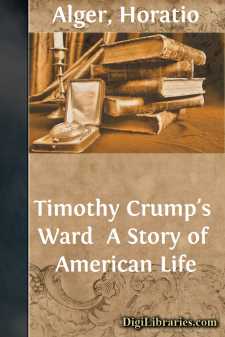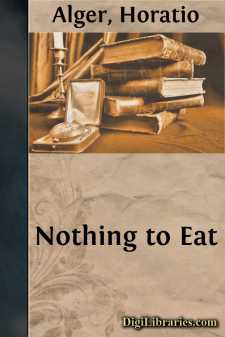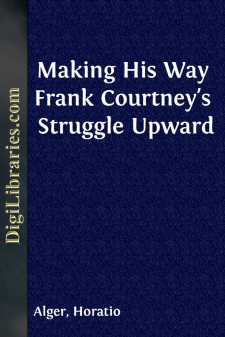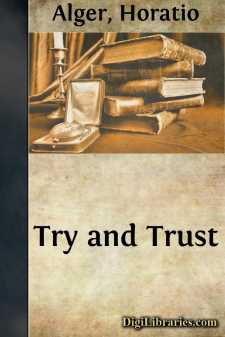Categories
- Antiques & Collectibles 13
- Architecture 36
- Art 48
- Bibles 22
- Biography & Autobiography 816
- Body, Mind & Spirit 145
- Business & Economics 28
- Children's Books 18
- Children's Fiction 14
- Computers 4
- Cooking 94
- Crafts & Hobbies 4
- Drama 346
- Education 58
- Family & Relationships 59
- Fiction 11831
- Foreign Language Study 3
- Games 19
- Gardening 17
- Health & Fitness 34
- History 1378
- House & Home 1
- Humor 147
- Juvenile Fiction 1873
- Juvenile Nonfiction 202
- Language Arts & Disciplines 89
- Law 16
- Literary Collections 686
- Literary Criticism 179
- Mathematics 13
- Medical 41
- Music 40
- Nature 179
- Non-Classifiable 1768
- Performing Arts 7
- Periodicals 1453
- Philosophy 66
- Photography 2
- Poetry 897
- Political Science 203
- Psychology 45
- Reference 154
- Religion 516
- Science 126
- Self-Help 86
- Social Science 82
- Sports & Recreation 34
- Study Aids 3
- Technology & Engineering 59
- Transportation 23
- Travel 463
- True Crime 29
Our website is made possible by displaying online advertisements to our visitors.
Please consider supporting us by disabling your ad blocker.
The Young Bank Messenger
by: Horatio Alger
Description:
Excerpt
THE LONELY CABIN.
Just on the edge of the prairie, in western Iowa, some thirty years since, stood a cabin covering quite a little ground, but only one story high. It was humble enough as a home, but not more so than the early homes of some who have become great.
Let us enter.
The furniture was scanty, being limited to articles of prime necessity. There was a stove, a table, three chairs, a row of shelves containing a few articles of crockery and tinware, and a bed in the far corner of the room, on which rested a man. He had a ragged gray beard and hair, and a face long and thin, with preternaturally black eyes.
It was evident that he was sick unto death. His parchment-colored skin was indented with wrinkles; from time to time he coughed so violently as to rack his slight frame, and his hand, thin and wrinkled, as it rested on the quilt that covered him, shook as with palsy.
It was hard to tell how old the man was. He looked over seventy, but there were indications that he had aged prematurely.
There was one other person in the room, one whose appearance contrasted strongly with that of the old man. It was a boy of sixteen, a boy with dark brown hair, ruddy cheeks, hazel eyes, an attractive yet firm and resolute face, and an appearance of manliness and self-reliance. He was well dressed, and, though the tenant of such an humble home, would have passed muster upon the streets of a city.
"How do you feel, Uncle Peter?" he asked, as he stood by the bedside.
"I shall never feel any better, Ernest," said the old man, in a hollow voice.
"Don't say that, uncle," rejoined Ernest in a tone of concern.
There seemed little to connect him, in his strong, attractive boyhood, with the frail old man, but they had lived together for five years, and habit was powerful.
"Yes, Ernest, I shall never rise from this bed."
"Isn't there anything I can get for you, uncle?"
"Is there is there anything left in the bottle?" asked Peter, wistfully.
Ernest walked to the shelf that held the dishes, and took from a corner a large black bottle. It seemed light and might be empty. He turned out the contents into a glass, but there was only a tablespoonful of whisky left.
"It is almost all gone, Uncle Peter; will you have this much?"
"Yes," answered the old man, tremulously.
Ernest lifted the invalid into a sitting posture, and then put the glass to his mouth.
He drained it, and gave a sigh of satisfaction.
"It is good," he said briefly.
"I wish there were more."
"It goes to the right spot. It puts strength into me."
"Shall I go to the village and buy more?"
"I--I don't know--"
"I can get back very soon."
"Very well--go then, like a good boy."
"I shall have to trouble you for some money, Uncle Peter."
"Go to the trunk. You will find some."
There was a small hair trunk, in another corner. Ernest knew that this was meant, and he knelt down before it and lifted the lid.
There was a small wooden box at the left-hand side. Opening this, Ernest discovered three five-dollar gold pieces. Usually his uncle had gone to the trunk for money, but the boy knew where it was kept....












